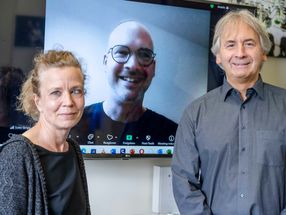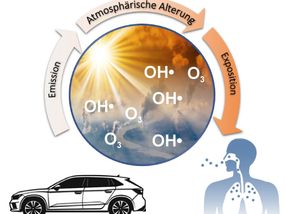Rutgers physicist elected to American Academy of Arts and Sciences
Rutgers University physicist Karin Rabe has been elected to membership in the American Academy of Arts and Sciences, one of the nation's most prestigious honorary societies and a leading center for independent policy research.
Rabe is a professor II in the Department of Physics and Astronomy in the School of Arts and Sciences. Her research focuses on theoretical analysis and prediction of the structure and properties of materials, and applying these methods to the design of new materials that could be used in future electronic devices for energy conversion and information storage and processing. She is a fellow of the American Association for the Advancement of Science and the American Physical Society, from which she received the David Adler Lectureship Award in Materials Physics in 2008. Earlier in her career, she received a Presidential Young Investigator Award and an Alfred P. Sloan Research Fellowship.
Rabe is among 198 scholars, scientists, writers, artists, civic, corporate and philanthropic leaders selected to join the academy this year. Members contribute to academy studies of science and technology policy, energy and global security, social policy and American institutions, and the humanities, arts and education.
"Election to the Academy honors individual accomplishment and calls upon members to serve the public good," said Academy President Leslie C. Berlowitz. "We look forward to drawing on the knowledge and expertise of these distinguished men and women to advance solutions to the pressing policy challenges of the day."
Most read news
Organizations
Other news from the department science

Get the chemical industry in your inbox
By submitting this form you agree that LUMITOS AG will send you the newsletter(s) selected above by email. Your data will not be passed on to third parties. Your data will be stored and processed in accordance with our data protection regulations. LUMITOS may contact you by email for the purpose of advertising or market and opinion surveys. You can revoke your consent at any time without giving reasons to LUMITOS AG, Ernst-Augustin-Str. 2, 12489 Berlin, Germany or by e-mail at revoke@lumitos.com with effect for the future. In addition, each email contains a link to unsubscribe from the corresponding newsletter.




























































